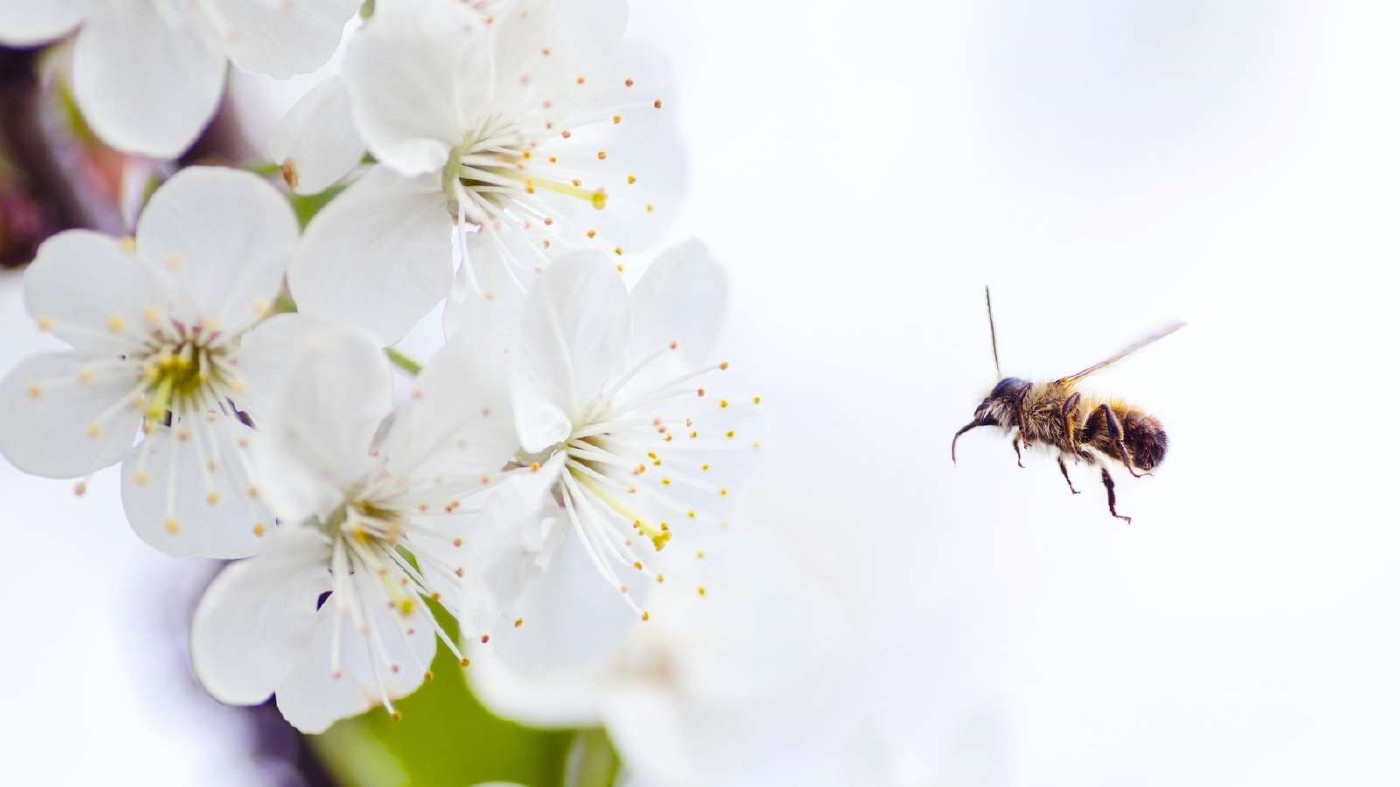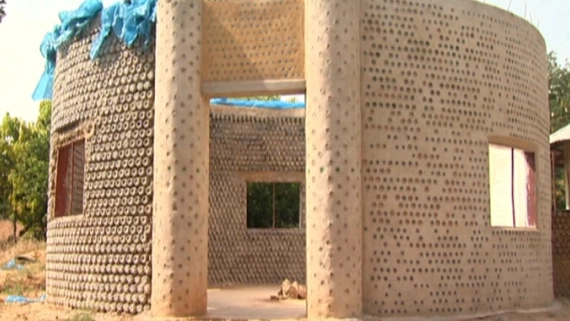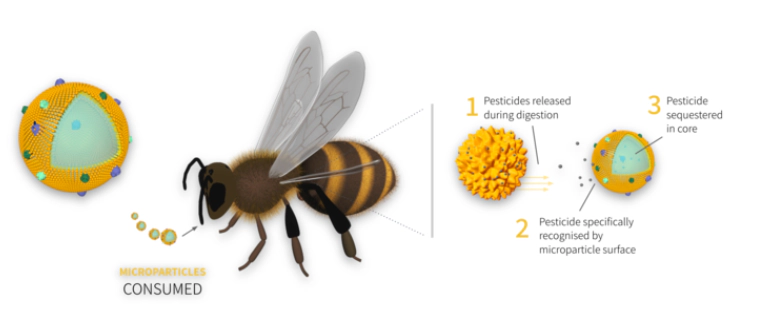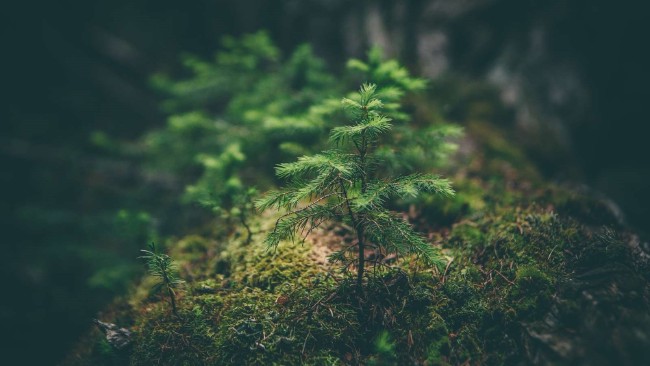
🐝 Earthquake-Proof Houses and Bees
Did you know? Returning land to native tribes improves biodiversity thanks to their centuries-old knowledge of these ecosystems and the infinite respect they have for them.
Bienvenidos to our newsletter 👋 This week again, we knocked on all the doors of the planet to find you the most uplifting social impact stories. Happy reading!
🏘 The Houses Made of Plastic Bottles
How cool would it be if we could provide affordable and quality housing and help the youth in our communities while preserving the planet?
The well-named Nigerian NGO DARE (Developmental Association for Renewable Energies) accepted this challenge and had the idea to build houses using locally harvested plastic bottles.
Each house’s construction requires 14,000 sand-filled bottles. The builders hold these bottles together with mud, traditionally used to build houses in the region, and lattice-patterned strings.

According to their creators, these houses are 18 times stronger than brick and can withstand earthquakes or even bullets. They are pretty, too!
While the ecological benefits of this technique are obvious, it’s not the whole story.
The project employs out-of-school and jobless youth to collect the bottles, fill them with sand and mount the structure. Last but not least, houses built with this “bottle-brick” technology cost only a third of the usual price in the region since raw materials are virtually free.
Nigeria is the 7th most populated country on Earth and is expected to climb to 2nd place by 2100. Therefore, this kind of holistic initiative could be crucial for the future of this country ✨
🐝 Following up on the Bees
Apparently, bees are not only sipping mojitos by the pool but also getting “vaccinated” (it’s not an actual vaccine, but please bear with us 😇).
Last week, we learnt that the Netherlands is building bee hotels and a honey highway to prevent their bee population from declining. Beemmunity, a Colorado-based company, took a different path and developed a pollen-sized microparticle that, when ingested, captures pesticide before it reaches the bee’s brain.

According to research published in the renowned Nature journal, this antidote increases the survival rate from 0% for untreated bees to 80% for the treated ones!
To deliver the microparticle to bees, the company sells a sugar bar that you can put in your garden to feed the visiting bees, as well as a sugar powder that beekeepers can apply directly into their hives.
Today, 98% of honeycombs in North America are contaminated with pesticides, and 40% of the managed colonies are lost each year. While the long-term solution includes removing pesticides from industrial agriculture’s operations, Beemmunity’s products provide a way to mitigate the issue until then.
Shout out to the team for coming up with a concrete solution that is available to everyone and helps solve a pressing issue while being so cute 😍
🌍 Meanwhile, Worldwide…
😷 A French organization, Solution Recyclage, provides companies with the ability to recycle used face masks into hypoallergenic, antibacterial, anti-odour technical sportswear. Innovative through and through 💪
🚗 Ford is working with Origin Materials to introduce carbon-negative PET plastic, produced from sustainable wood residues, into their vehicles – including bumpers, paint pigment, door panels, seat cushions, armrests, etc. Could we see a carbon-negative car soon, please? #wishlist
📚 A library in Denmark developed a fascinating concept: instead of borrowing books, you can borrow time with someone who will tell you their life story. The Human Library’s goal is for people to go beyond stereotypes and stop “judging books by their cover.”
♻ An Indian company, CODE Effort, made more than a million dollars selling toys, furnishing and mosquito repellents… Oh, we forgot to tell you that all these items were produced from recycled cigarettes 🤯
🥧 By studying protein interactions to understand and treat Alzheimer’s disease, researchers discovered a way to mimic spider silk - one of the strongest materials in nature - to create vegan, biodegradable, soy-based plastic. After penicillin and the tarte Tatin, is this another world-changing accidental discovery?
❄ Yi Zheng, a mechanical and industrial engineering professor, has invented a material that can reflect solar rays and actively absorb heat. Covering roofs with this “cooling paper” and incorporating it into construction material could dramatically reduce your electricity bill while keeping you cool all summer 😎
That’s a wrap. If you enjoyed this newsletter, please share it with your friends! For any feedback, reach out and drop a comment here or on our social media platforms :-)
Thank you so much for your support 💗 Have an amazing week ahead.
Related Posts
🌽 Using Popcorn as Shipping Material and Extracting Lithium from Seawater
Did you know? Companies with a social purpose outperform profit-only ones by 134% in the stock market 📈💰
🌱 Turning Face Masks Into Trees and Cleaning up the Ocean
Good morning 👋 Saturday was World Environment Day! For the occasion, we learned that we throw away 2.12 billion tons of waste every year and discovered fantastic initiatives trying to change that.

